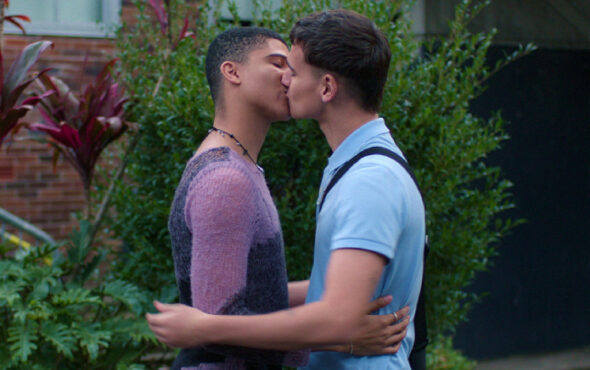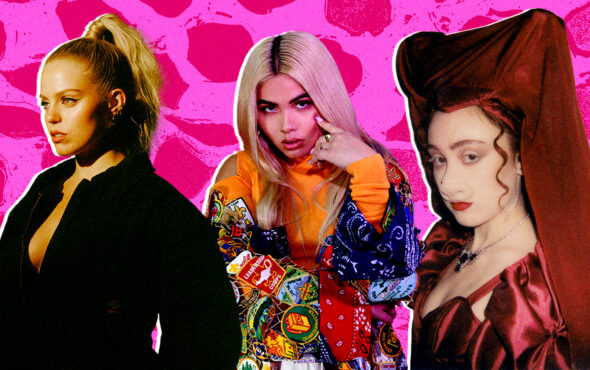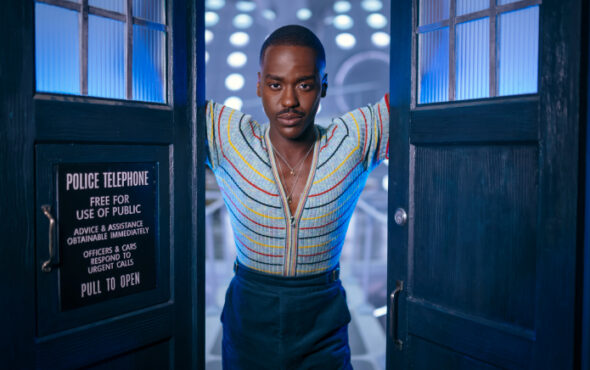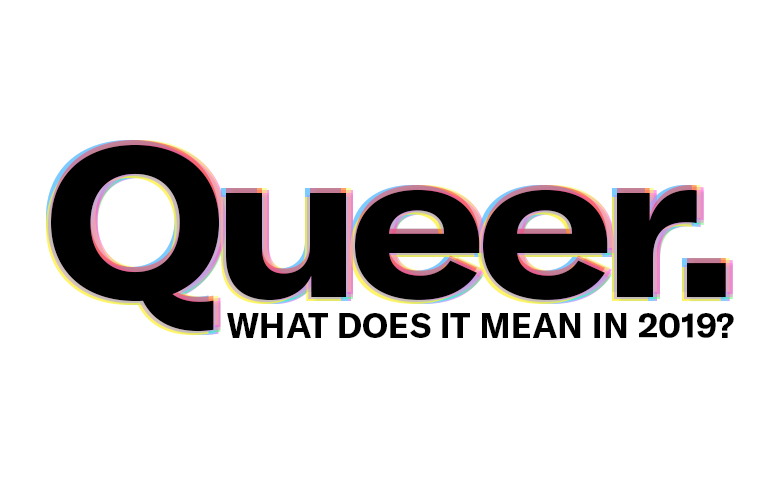
The numbers don’t lie. In a study conducted by Ditch The Label in 2017, more than half of young people (13-26 year olds) in the UK and US said that they don’t identify as exclusively straight.
It shone a bright spotlight on a new generation of people who are more open about their sexual identity, refusing to conform to the status quo and more confident than ever to be true to their authentic selves.
It’s likely what has helped turbo-boost the reclaiming of the word ‘queer’ from a derogatory term used against LGBTQ people from the end of the 19th century through to the 1990s, when LGBTQ groups – such as New York City activists Queer Nation – started to identify using the once pejorative word.
At the turn of the millennium, ‘queer’ was increasingly used as an umbrella term for people who ascribe to non-normative sexual and gender identities. As Queer As Folk and the original series of Queer Eye won legions of television fans in the early 00s, the word began to be embraced by more people from within the community.
The past few years in particular have seen young people use the identifier, revolutionising its use from one of discrimination to that of fluidity, freedom, and fabulousness. For some, however, they’ve had to dismantle their relationship with the word, shedding memories of playground taunts and public hate speech to recognise the power it can hold with its revitalised interpretation.
To get an understanding on what ‘queer’ means in 2019, we spoke with a number of prominent figures across the community to get their perspective.
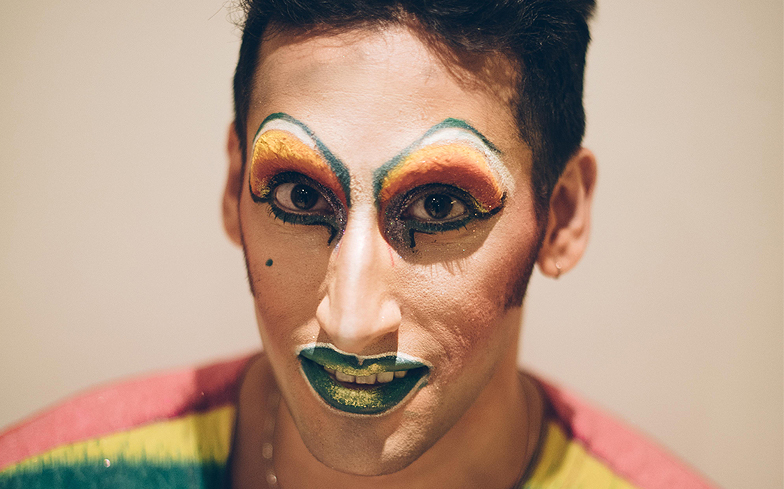
Amrou Al-Kadhi
Filmmaker, Writer, Performer, Drag Queen
For me, being queer means constantly pushing the limits of everything about me; who I’m attracted to, what my identity is, how I act in spaces. I see being queer as a constant challenge in everything I know, so nothing ever really feels fixed for me, and when it does feel fixed then I don’t trust it. I really want to push the limits of my understanding as far as possible because, quantum physics shows us that every atomic particle in our universe changes and moves and can be in five places at once. When you think you know what it is, it changes, the foundation of our universe and that’s how I feel like what my understand of it should be as well.
Sharon D. Clarke
Actor
I will always classify myself as gay, as opposed to queer. I think that is because of growing up in a generation where queer was such a derogatory word. I’m not someone who likes to link myself with what I see as negative word, and when there are other choices that I can make, I don’t really feel that I need to reclaim what I feel is a derogatory word and make it positive when there are already words that I associate positively with something. I personally won’t use queer because the minute I say it, all my vibrations go back to what queer meant and I’d rather not have that vibration in my life. Define yourself how you want to define yourself, that’s just not my choice. Gay, lesbian, bi, whatever, but just not queer… for me.
Tom Rasmussen
Writer and Drag Queen
I’d like to say that queerness means a constant rejection and questioning. There’s a theorist called Muniarts that says that queerness is the horizon and never the shore, and that is kind of how I feel being queer means to me. It’s constantly asking questions, constantly upending everything you thought you know. My grandma died recently and I put a very queer perspective on it compared to my siblings – who I adore. I was asking all these questions about where we go, what it means, and the fact there’s so much potential and so many limits in our own minds. Queerness offers me a reading of the world which is basically constantly asking questions rather than assuming you know all. Also, it’s definitely linked to my gender and my sexuality.
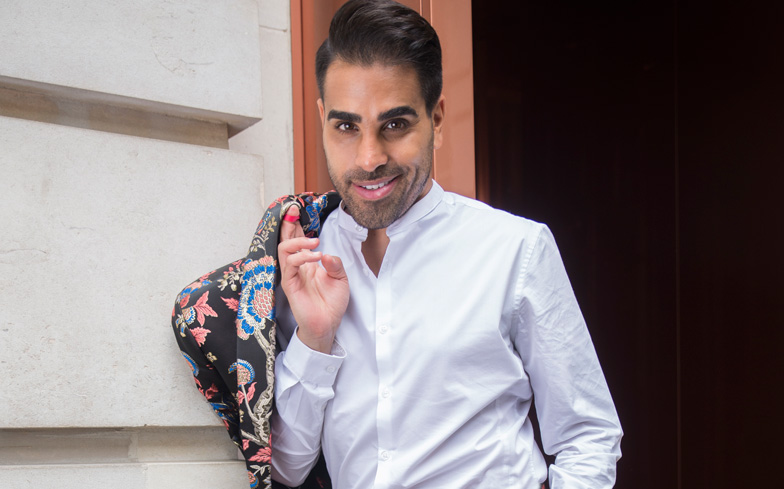
Gabriel Mokake / Gay Times
Dr. Ranj Singh
NHS Doctor, TV Presenter, Author and Columnist
I grew up in a time when queer was only ever used as an insult. For some people, it sadly still is. But I feel strangely lucky that I’ve lived to see a time where words that once caused so much pain, can be completely reborn. These words have become terms of positive identification and even celebration. I’m proud to be queer. I didn’t ever think I would say that. Reclaiming words of pain and using them for power is vital if we are to grow as a society. It’s a way of undoing some of the damage that they have done. We owe that to those who have gone before us and suffered because of them. And it sends a new message out to the world we are in today: never again will this word be used to harm. Queer, to me, now means the freedom to express yourself and to express your love in a way that you choose. It means not having to live by labels. It represents progress. But at the same time, it should remind us of the struggles that some people still go through. It should remind us of people who have lost their lives and livelihoods simply for daring to be themselves. And it should remind us that we still have responsibilities to each other and the community.
Alexis Caught
Podcast host, Qmmunity
“I’m not queer, I’m a gay man, why would I call myself queer?” For a long time – I hated that word, it was attached to painful memories of homophobia and violence. The way we use language, and identify, evolves…and I realised my thinking, my feelings, on the word needed to as well. I looked at how it was being used as a positive, unifying, collective term that all of us in the LGBTQ spectrum could belong to – something better, more historic, than the jumbled, powerless acronym thrust upon us by straight society. I realised it’s not an either or, I’m a gay man, who proudly belongs to the wider queer community. To me now, queer means being empowered, equal, standing in solidarity together as a family.

Aaron Jay Young / Gay Times
Trace Lysette
Actress
Queer for me means brave and cool. I remember playing smear the queer as a kid on the playground during recess at school. Whoever was brave enough to pick up the ball was the “queer” and basically people would tackle you, it was rough and also fun, but sometimes people got hurt. But the word queer was not something you wanted to be associated with in real life back then in the 80’s. Interesting to see the parallel in picking up the ball and being out and proud as queer in the game of life. Both require a certain amount of bravery and the ability to be okay with being different from the masses. I’d like to think we are at a place now where in spite of all the hardships we endure, we can begin to think of ourselves as different in the best of ways… the bravest of ways. Queer means many things to many people but for me it’s strength, bravery, and beauty.
Anthony Bowens
Pro Wrestler, Model and Actor
Honestly, I’m fine with it. If we can eliminate a stigma towards a word, then I think that’s a pretty cool thing to do. I’m starting to notice there’s a big difference between an older generation and the younger generation, with how they view certain things. We had a prank video, where Michael genuinely got me, and a lot of it is divided between, ‘This is not funny’, and ‘Wow, great job Michael’, and what I’ve noticed is it’s the older generation claiming it’s not funny while the younger generation have a completely different view of it. I think it’s clearly a generational thing. But to answer your question, it has been traditionally a term here that’s degrading to LGBTQ people, but if we can take a word like that, and flip the switch on it, and make it something more positive – because obviously words can mean different things – then I’m totally ok with that.
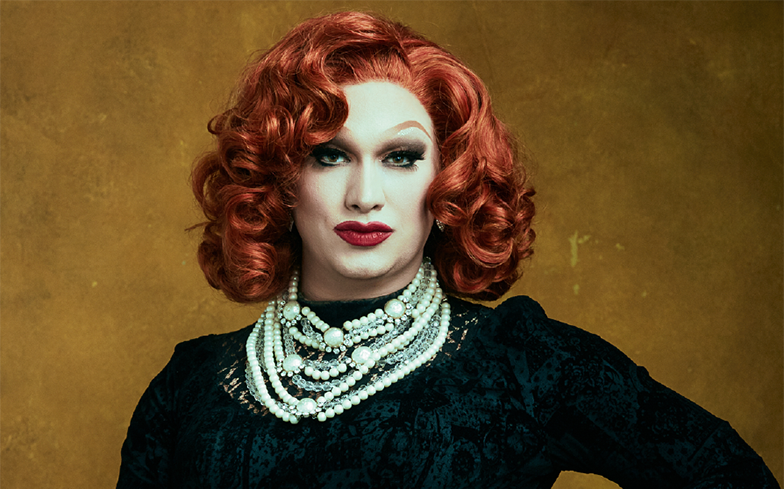
Jinkx Monsoon
Drag Superstar
I think members of the LGBTQAI+ community are allowed to have different views on the usage of this word, as we all come from different backgrounds and have different stories. For me, I was raised in a very LGBTQAI+ friendly city and community, and I was taught the word “queer” as an umbrella term for all members of our community. It was used not only to reclaim the word from our oppressors, but also to unify those of us who do not fit in with the heteronormative community at large. I’ve alway used the word with pride, as that’s the only way I had ever heard the word used in my personal experience. However, now that I have a public platform – when I use the word, there are always people who respond telling me that the word still strikes a chord with them as something negative, because of where and how they were raised, or because of things they’ve endured in their own lives.
I don’t know if we as a community can come to a consensus on the usage of this word, but I believe we have to give each other the benefit of the doubt. Seeing as we don’t all know each other’s stories, my hope is that we can look at the context of the person who is using the word. Using myself as an example, I believe I have proven time and time again that I wish to be a strong advocate for our community, and when I use the word “queer”, it is in the spirit of unifying us against our oppressors – and in the same vain, I try to be sensitive to when and how I use the word, knowing that people have different experiences with it. I’m reminded of the battle over the word tr*nny within our community. While some people have very negative experiences with that word, others have only ever used it for self empowerment. I don’t believe it is right to tell a trans person not to use a word they have reclaimed for themselves… while I also believe we can’t use the word flippantly, ignoring the damage it has done to others.
If I had to sum my feelings up, I believe that we should be able to express ourselves, within our community, under the conceit that our community is a safe space for us to have a dialogue with each other. However, when we are speaking publicly, we must be very conscious to how and when we use the word “queer.” It’s one thing when we are talking to each other, taking the time to consider our various backgrounds – but when we use the word in conversation with outsiders, we run the risk of giving outsiders the idea that they can/should use that word – when they don’t have the same understanding or education on the word as we do. The last thing we need is our oppressors attempting to re-reclaim the word from us to be used as something negative against us.
I think to strengthen our community, we must move forward with compassion and empathy towards one and other; both those who use the word for empowerment, and those who have a negative history with the word. We must look at the context and the person using the word, and give each other the benefit of the doubt – while at the same time, making sure we aren’t using the word flippantly when speaking to outsiders who don’t have the same history with the word, good or bad.
Bella Thorne
Actress
Being queer means just being me. It means being happy. It means that I’m able to walk in my own shoes and feel okay doing so. But I think that the other part of queer to me means being happy, eccentric and beautiful. All the gay people I meet are honestly the nicest and happiest people. I’m an eccentric person. I’m loud and I’m out there. I laugh big. When I’m around people that are like me and I’m like them, it just feels right.
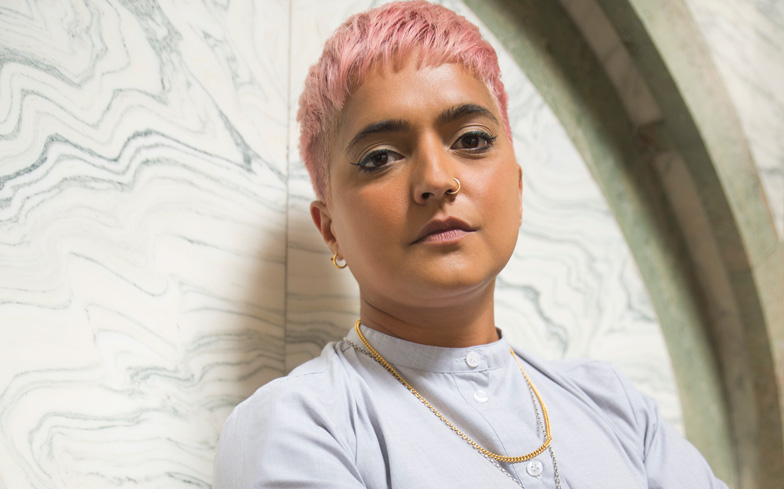
Gabriel Mokake / Gay Times
Reeta Loi / LOIAL
Writer, Singer, Producer, DJ, CEO Gaysians
The word queer to me means freedom. I feel liberated from the systems of suppression aimed at controlling the masses. It means courage because its takes a gut full to be your unique self in this world. But most importantly of all in 2019, it means compassion. We must find compassion for ourselves when so much around us tells us we are not worthy and once we do, it is the greatest gift we can give ourselves in this life. Then, we can share this compassion with others and that is the most beautiful part of being queer, that we can see the humanity in anyone that is different to us and show them love.
Phil Samba
Social Activist, Writer
When I was younger I absolutely HATED the word ‘queer’ as it was only ever used in a derogatory way in school and I never knew it was an umbrella term for everyone that was not heterosexual or cisgender. I didn’t learn this until my early 20s but even still I didn’t identify with it until last year when I chose to reclaim it but I understand why others wouldn’t want to. Now, I personally find the word empowering, I find power and strength in the word and I see it as inclusive way to describe people of all sexual and gender minorities. I prefer the word ‘queer’ over LGBTQ as I feel that a lot of the time it means only one part of the community whilst completely erasing the intersectionality of queer people of colour and I know other members of the community would agree.
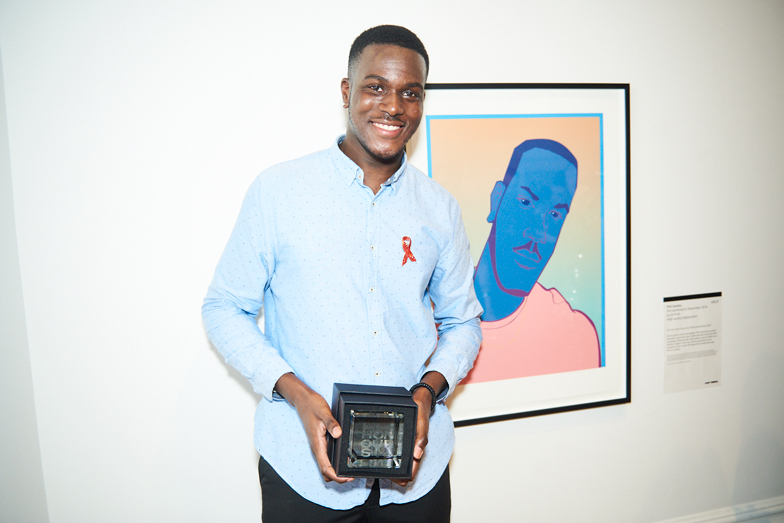
© Cé Ó Coileáin for Gay Times
Amanda Lepore
Entertainer, Model, Muse, Blonde Bombshell and Author
It’s definitely an old-school word first of all. It just really represents our individuality and differentness. It’s not necessarily just homosexuals but a lot of different things. I think it’s a good word.
Salina EsTitties
Drag Performer
I love it! Reclaiming my time, reclaiming my word, reclaiming my queer honey! It’s ours to keep! I think it’s very powerful to claim that, just like it was powerful for the men and women and our transgender brothers and sisters who came before us to create Pride. We have these celebrations of Pride and they’ve reclaimed it for us. Why not reclaim the word that people used against us, like ‘faggot’, ‘queer’ and ‘sissy’? Like yes, I’m a sissy boy! Take me or leave me! Yes I’m queer darling, lick it up and eat it!
Jamie Windust
Writer, Activist
In 2019, queer identities are more politicised and important than ever. We are in a time where we are now just being tolerated, and not cherished and explored. When we are in a time where parts of the world, such as Chechnya, are grouping up LGBTQ queer people and torturing them, our identities across the world need to unite and be more powerful than ever. For me, queerness is still an act of disruption and power that we each own collectively, that when it comes together, is a force that needs to be known that it’s not to be reckoned with. Queerness is the perfect self-definitive term that allows us to begin to explore all of the other facets that we have.
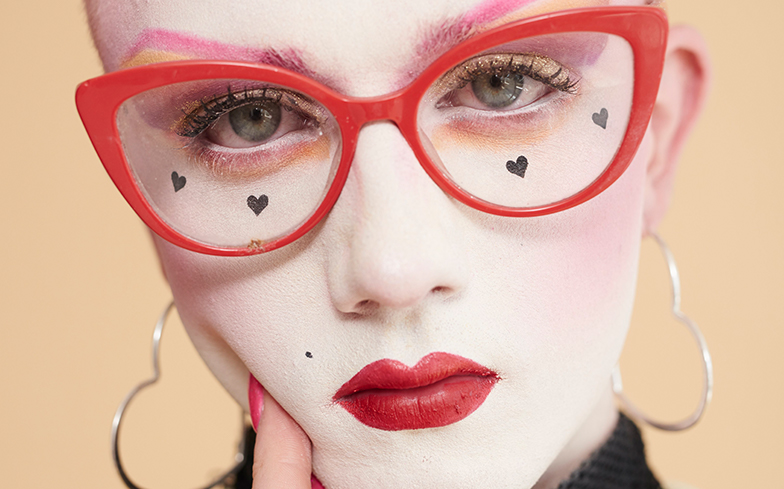
Photo by Matt Joy
Matt Horwood
Assistant Director of Communications at AKT
Personally, I think ‘queer’ can act as a marker for people who don’t feel that their identities and experiences are seen or represented by the history and acronym of ‘LGBT’. For me the word also shifts or adds a layer to what we share as a community; while the letters ‘L’, ‘G’, ‘B’ and ’T’ represent sexual orientation and gender identity, I think ‘queer’ unites us in our shared experiences of otherness and marginalisation. That can ignite a sense of togetherness and allyship with one another, which is something that’s often missing within the LGBT community. As a word that has been and is still used as a violent, anti-LGBT slur, there are obvious sensitivities around the word ‘queer’. Many people choose not to use it, whether because of its history or otherwise, and no one should feel forced to personally identify as queer as synonymous to ‘gay’, ‘bi’, ‘trans’ or however else they identify. However, many queer people find solace and power in reclaiming that word for themselves, and for others it’s just what fits with who they are. That should absolutely be accepted and respected, and as a community that understands how personal identities are, we should know that no one has the right to take them away from other people. While I don’t identify as queer, I recognise and celebrate my queer partner, friends, colleagues and members of the community in their doing so, and feel completely seen by terms like ‘queer space’ and ‘queer event’.
Sasha Velour
Drag Queen
Queer in 2019 isn’t really for me to define, but I hope that we will see increasing representation (culturally and politically) for all queer people, specifically AFAB, trans, and non-binary POC, the folks still too-often excluded from discussions of “gay rights.” I also think we have a responsibility to infuse queer discourse with optimism—truly one of our greatest resources—because the joyous task of dismantling oppressive structures most go hand in hand with the dedicated hard-work of imagining and building alternatives.
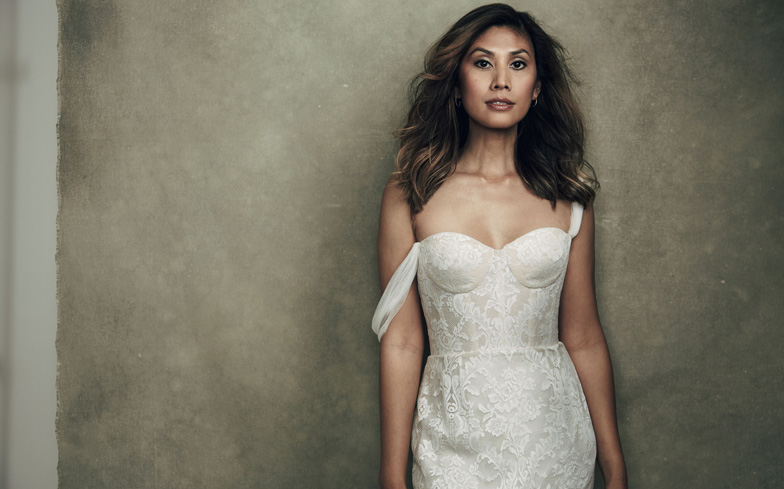
Aaron Jay Young / Gay Times
Rain Valdez
Actress, Activist
Queer isn’t just a word or a lifestyle. It’s a world and a livelihood. To reclaim queer we have to really interrogate what “the norm” is. And if you identify as “usual”, “standard”, “ordinary” and “common,” then perhaps there isn’t anything to interrogate. But if you feel authentically “different”, “curious”, “funny”, “peculiar”, “unconventional” or “unexpected”. There is a world out there that is meant for you to explore. And a fantastic group of people you are meant to connect with. To discover your queerness you have to be adventurous and dig deep for the truth. You have to embrace your divine femininity, your divine masculinity and everything in between! There is something queer in all of us. And the queerest of them all, live much more fulfilling lives. How is that not the norm?
Chloe Davies
Relationship & Experience Manager for Diversity Role Models, Executive Officer for UK Black Pride
In our community especially, words are meaningful and they hold weight, and whilst respecting what the word once meant, being queer feels like I have a super power. I am inspired not only to be my authentic self but also my best self, in life, work, as a mother/parent, as a partner and also as a friend. Being queer also motivates me to want to better understand our LGBTQ history, to pay respect to those for whom the word still carries such painful memories and to understand why. But also as I look to the future and our generations to come, what has now been reclaimed will be (to quote a good friend) ‘Usualised’ and that gives me such hope.
Lee Gray
Podcast host, Wolves In The City
Recent times have shown people defiantly and confidently express their sexuality and distinctions in gender identity so I have felt – like many in our community – that we had outgrown the acronym LGBT. I have always felt the acronym was incredibly exclusionary for people who are still on a personal journey, forcing them to define themselves by one of those letters in order to make it into the family. So with an understanding of the origins of the word “Queer” I have been pleased to see a majority of the community not only accept it, but reclaim it as ours and define it however we choose. It puts my mind at ease to know that I don’t need to describe and justify my identity when I can simply be QUEER.
Myylo
Singer-songwriter
I don’t everyday identify as queer, but I identify with that term. I think the reason that I identify with that term is because I went to a super liberal college where I was really involved with the LGBTQ community, as an organiser. It speaks to our broader community. We should be in a community with people who are lesbian, who are trans, who are bi, and who identify as other things. I feel like ‘queer’ to me includes all of those people as an umbrella term. For me it separates us, and as a community I prefer queer and trans.

